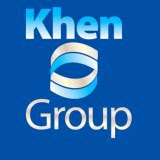The Agência Nacional do Petróleo, Gás Natural e Biocombustíveis (ANP) of Brazil has now published the initial tender protocol and draft concession contract for its 11th licensing round and plans to hold the auction of oil and natural gas rights on May 14 and 15 in Rio de Janeiro. The auction will resume oil and gas licensing for the first time since 2008.
The 11th licensing round had previously been delayed by the President’s refusal to grant new licences while the political branches of government were unable to agree on the allocation of oil revenues. A new royalties bill was passed in late 2012, increasing the share of oil revenues allocated to non-producing states and municipalities. However, the President vetoed parts of that bill, which would have applied retroactively and required the reallocation of oil revenues under existing concession contracts, costing the major oil producing states, and in particular Rio de Janeiro, billions of Reais in lost revenues. The President’s veto is still subject to reversal by the Brazilian congress, which will deliberate on this issue when it returns from recess in February. In any case, the new rules for distribution of revenues will apply to future contracts, including those available in 11th licensing round.
The Initial Tender Protocol contains details for 172 blocks, in mature onshore basins (Espírito Santo, Parnaíba, Potiguar, Recôncavo, Sergipe-Alagoas) and more frontier offshore basins in the North and North-East of Brazil (Barreirinhas, Ceará, Foz do Amazonas, Pará- Maranhão and Potiguar). The latter, in particular, are considered prospective, given the geological similarities between this region and the Gulf of Guinea, where substantial reserves have recently been discovered in Ghana and Cote D’Ivoire. According to Marco Antonio Martins Almeida, of the Ministry of Mines and Energy, the 11th licensing round may be expanded to include another 117 blocks (a total of 289), including onshore blocks in the Tucano-Sul basin and additional acreage in the Foz de Amazonas basin.
No acreage is on offer from the ‘pre-salt’ region off Brazil’s South-East coast, where recent giant discoveries have been made. The government plans to hold a separate bid round for this acreage, which will be awarded on the basis of production sharing contracts, currently expected in November of this year. The government The government has also announced a special auction of onshore shale gas and oil exploration acreage for December this year.
The tender protocol for the 11th licensing round sets out pre-qualification requirements, bid procedures and the main commercial terms of the concession contracts on offer, with pre-qualification documents to be submitted by 26 March 2013, ahead of the bidding in May.
Similar to the previous licensing round, to pre-qualify, the ultimate parent company of a proposed concession holder must demonstrate its technical and financial capability. Successful applicants may qualify as an ‘A’, ‘B’ or ‘C’ operator or a non-operator depending on their level of technical experience and their net equity position. The majority of blocks available in this licensing round may be operated by ‘C’ Operators, although those blocks with exploration phases of longer than five years will require ‘A’ or ‘B’ Operators.
Pre-qualified companies may bid individually or in consortia. All consortia must consist entirely of pre-qualified companies, with at least one pre-qualified operator holding at least a 30% interest and each consortium member holding at least 5%. Each bidding company and each member of a bidding consortium must pay a participation fee of R$15,000 per sector or R$125,000 for all sectors, which will give them access to data packages covering the relevant blocks.
Where a bidding company is a non-Brazilian entity, it is required to incorporate or designate a Brazilian subsidiary with its main office and administration in Brazil to hold the concession. In this case, the pre-qualified bidder must guarantee the obligations of its Brazilian subsidiary.
Bids will be assessed by the ANP according to the: (a) signature bonus (40%); (b) mandatory exploration programme (40%); and (c) minimum local content requirement (20%) offered by the bidder. Of the minimum local content requirement, 5% will be allocated for the Exploration Phase and 15% will be allocated to the Development Phase.
The draft concession contract is very similar to that used for the 10th licensing round. The term of the concession is up to 35 years, with an exploration phase of five to eight years and a development and production stage of 27 years. Other significant terms of the concession include a government royalty of 10% and annual surface rental of between R$34.39/km2 or R$644.80/km2 during the initial exploration phase. The latter will be increased by 100% during any extension to the exploration phase and during development and by 900% during production. Concession holders will be subject to Brazilian taxes, including the “Special Participation”, which is calculated according to the volume of production, location and year of production. Finally, the concession holder will be liable for payment of 1% of production to the landowner, as well as the cost or any rights of way or easements necessary to obtain access to the land.
The announcement of this licensing round was welcomed by an industry that has been starved of new exploration opportunities in Brazil over recent years, and it has generated considerable interest from existing Brazilian oil companies and potential new investors. With this and other licensing rounds planned for this year, we expect a surge in investment in Brazilian oil and gas exploration, and hopefully the growth of a more diverse oil industry that takes in frontier exploration, enhanced recovery from mature basins and unconventional oil and gas, as well as the giant discoveries of the ‘pre-salt’.


